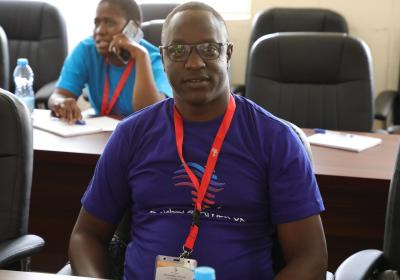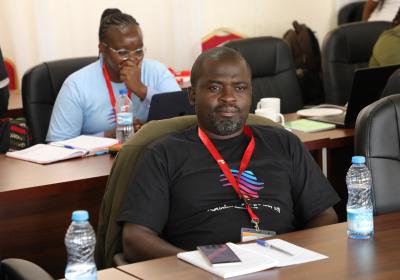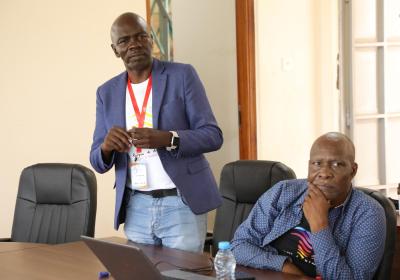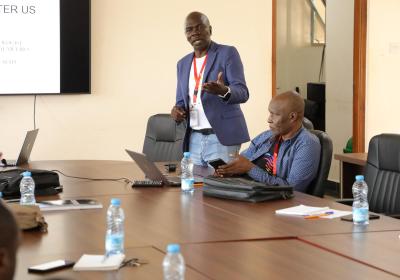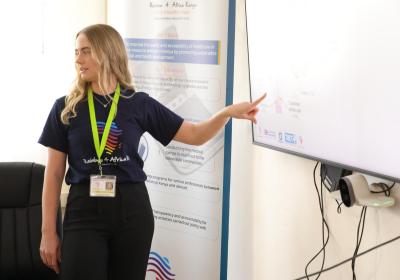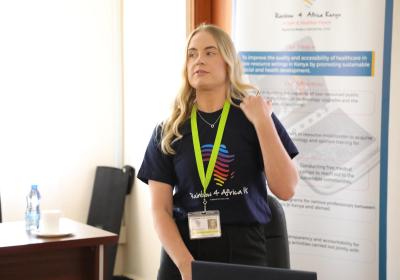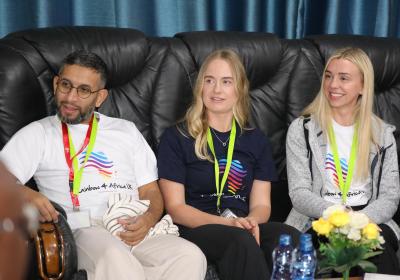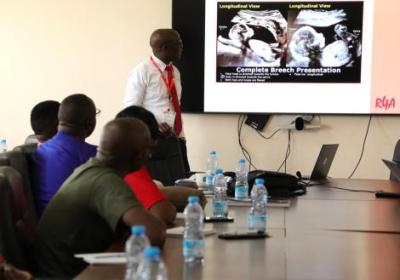Masinde Muliro University of Science and Technology (MMUST) has joined forces with Rainbow for Africa UK to transform maternal healthcare in Kenya through the introduction of Point-of-Care Ultrasound (POCUS). From 1st to 3rd October, 2024, a comprehensive training was conducted, bringing together leading experts from the UK alongside local radiologists, nurses, and doctors, to facilitate knowledge transfer and capacity building. This initiative, part of the Global Health Workforce Programme (GHWP), aims to equip healthcare providers in primary-level facilities across Kakamega, Vihiga and Busia Counties with critical skills to improve early diagnosis, expedite referrals and enhance treatment interventions for expectant women.
Funded by the UK Department of Health and Social Care (DHSC) through the Tropical Health and Education Trust (THET), the POCUS project forms part of a broader effort to strengthen health systems in Kenya, Ghana, and Nigeria. It seeks to enhance resilience in post-pandemic recovery while accelerating progress towards universal health coverage.
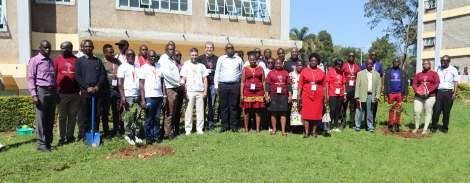
Participants of the training after the tree-planting exercise.
The introduction of POCUS technology will empower healthcare workers in the maternity units by allowing them to conduct ultrasounds directly at the patient’s point of care. This innovation is expected to significantly reduce wait times and financial burdens for expectant mothers while also enhancing healthcare workers’ diagnostic confidence. The ability to detect complications early will lead to timely interventions, ultimately improving maternal and prenatal health outcomes.
Speaking during a joint meeting with the partners, the Vice Chancellor, Prof. Solomon Shibairo, underscored the University’s dedication to addressing maternal health challenges through research-driven interventions. He commended the partnership with Rainbow for Africa UK, emphasizing its role in improving maternal healthcare services.
“This initiative demonstrates our commitment to advancing healthcare outcomes through research-based interventions. By equipping healthcare workers with portable ultrasound devices and diagnostic expertise, we ensure that expectant women, particularly in rural areas, receive timely and effective care. This collaboration not only strengthens healthcare delivery but also elevates MMUST’s position as a leader in shaping the future of medical education in Kenya. It aligns perfectly with our mission to address key health challenges including infectious diseases and mental health, while building stronger, more resilient healthcare systems,” remarked Prof. Shibairo.
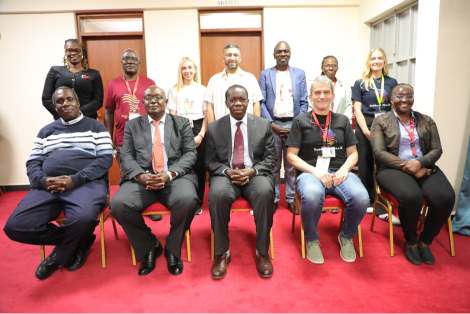
The Vice Chancellor, Prof. Solomon Shibairo (seated center) together with MMUST-Rainbow for Africa UK team.
Representing the Deputy Vice Chancellor of Planning, Research, and Innovation, Prof. Benedict Alala highlighted the role of research and strategic partnerships in addressing societal challenges. He emphasized MMUST’s focus on leveraging its partnerships to develop evidence-based solutions that address the unique healthcare needs of local communities.
“Our core mandate as a University is to lead research that provides real-world solutions. As healthcare technology advances, it is essential for us to be at the forefront of innovation, continuously adapting our approaches to harness new technologies,” stated Prof. Alala.
Dr. Massimo Gozzelino, Chairman of Rainbow for Africa UK and the Board of Trustees, expressed his concern over high maternal and prenatal mortality rates, underscoring the need for more effective healthcare interventions. He highlighted the growing interest in POCUS technology, emphasizing its potential to transform maternal healthcare delivery. Dr. Gozzelino also stressed the importance of fostering clinician relationships to ensure continuous knowledge exchange between the UK and Kenyan healthcare professionals.
“Establishing strong connections between clinicians will enhance collaboration and the sharing of best practices, ultimately improving healthcare outcomes in local communities. Our organization is committed to expanding the POCUS program as a key strategy to address these pressing challenges and improve maternal and infant health,” he stated.
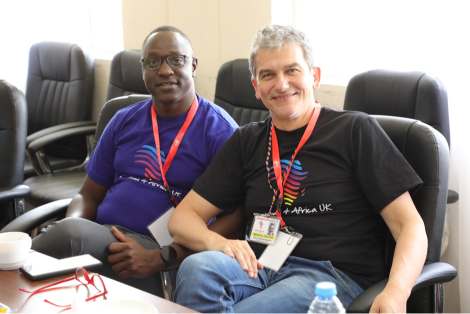
Dr. Massimo Gozzelino, Chairman of Rainbow for Africa UK and the Board of Trustees (right) with one of the participants.
Reiterating the importance of this collaboration, the Dean School of Medicine, Dr. Anthony Sifuna, emphasized the importance of partnerships in nurturing the School’s growth. He assured his support for the initiative, encouraging the continuation of joint projects to further health initiatives in the region.
Commending MMUST, Dr. Francis Wanyama, a renowned researcher from the University of Nairobi who doubles as the Chairperson of the Rainbow for Africa Network, applauded the University for the immense support it has accorded the project. We are delighted to have MMUST on board as a key partner to help us improve the quality and accessibility of healthcare in low-resource areas by promoting sustainable social and health development.
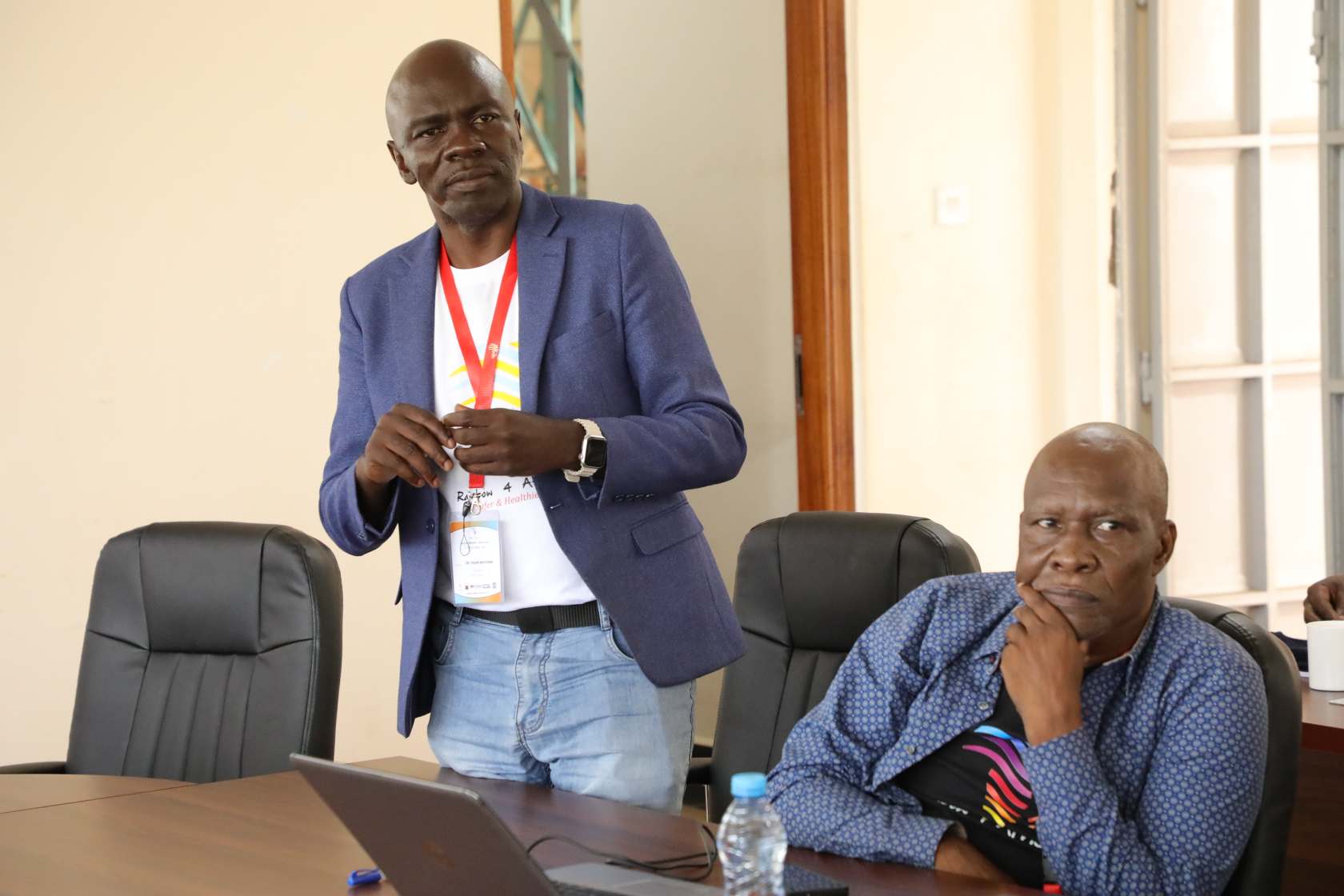
Dr. Francis Wanyama addressing the participants.
The Chairperson of the Department of Obstetrics and Gynaecology- MMUST, Dr. Mutakha Godfrey, highlighted the urgent need to address maternal health challenges, citing the high maternal morbidity and mortality rates in Kenya’s Western region. He noted that out of every 1000 expectant women, 316 experience complications, with the national figures standing at 355 per 1000. “Our objective is to reduce maternal mortality and morbidity to zero. I believe that this POCUS technology and training will be instrumental in achieving that goal, particularly in rural areas where timely interventions are crucial,” he explained.
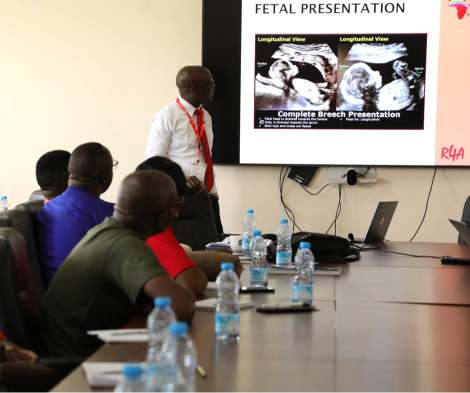
The Chairperson of the Department of Obstetrics and Gynaecology- MMUST, Dr. Mutakha Godfrey making a presentation.
In a related note, Dr. Rose Opiyo, an Educational Psychologist mentoring underage and teenage mothers, emphasized the importance of making POCUS machines accessible at the grassroots level by equipping Community Health Workers (CHWs). She is certain that by empowering CHWs, who serve as vital links to young mothers, they can be reached and supported through the prenatal journey to successful deliveries.
The Grants Manager, THET, Ms. Grace Rukwaro underscored the advantages of international collaborations, noting that such partnerships bring access to cutting-edge technology, specialized expertise, and global best practices. “By working with established international partners, we leverage their innovation and experience to ensure sustainable and impactful outcomes for our healthcare systems,” she noted.
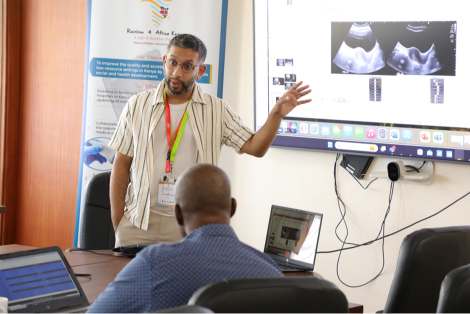
Dr. Mohammed Chunara making a presentation.
The event was concluded with a tree-planting exercise to affirm the participants’ commitment to improving healthcare and tackling climate change. The training featured experts from the UK’s Liverpool Women’s Hospital, including Dr. Mohammed Chunara, Emma Polgar, Nicola Lincoln, Alexandra Lopes, and Rebecca Kennedy.
By Caren Nekesa and Linet Owuor
Photos by Shiundu Masafu and Steven Omondi





